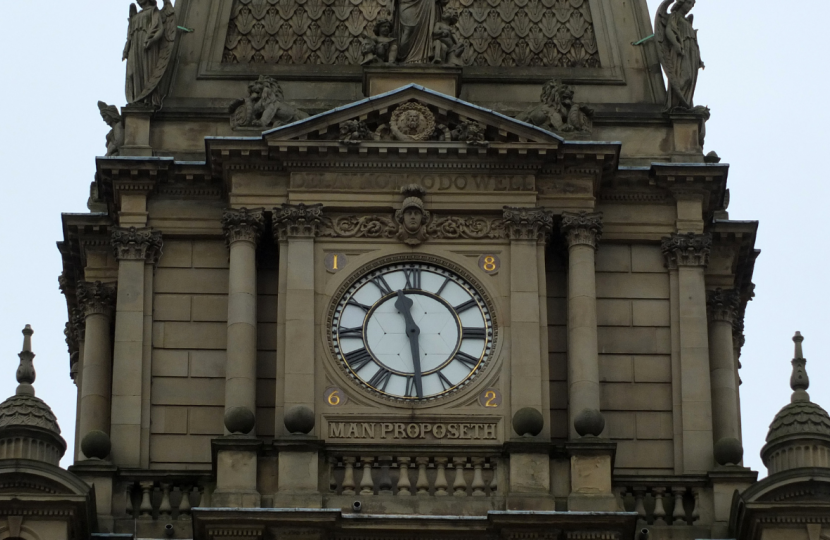
Successful leaders make difficult decisions in the short-term for the country's long-term betterment.
For the Conservative Government, these decisions were to tackle the pandemic through the development and procurement of vaccines to protect people's lives and through the furlough scheme to protect people's livelihoods.
Neither of these were easy decisions, and they have very significant costs attached; they have increased debt and proved to be major factors behind higher inflation, static growth, and domestic economic pressures.
However, under Labour's leadership, Calderdale Council is not making difficult decisions for a better future in Calderdale - in fact, they are shying away from their responsibilities.
Their naive financial mismanagement exemplifies this. For example, at the half-year the financial analysis reports that the Council is projected to have a £16m deficit by the end of the year. This is a direct consequence of their actions to date. The Cabinet have overseen an overall decline in the Council’s financial reserves, increased borrowing, and failed to make adequate cost savings.
Some of the spending is essential, such as an extra £5.5m on high-needs Children and Young People Services, which is outside the Council's control due to particularly high inflation in this sector (although, this £5.5m can be recouped in full from the Government).
But in August, when the projected overspend was reported to be £5m in the first quarter, I asked the Cabinet if the overspend would continue to increase, and I was told in no uncertain terms by the Cabinet Member for Resources that it would not increase, and she insisted that steps would be taken to bring down spending.
But now that we have the second quarter report, we note spending has continued to increase unabated, and that the Council plans to use £10m of its so-called "reserves" to plug the gap. This is entirely at odds with the advice of the financial officers who helped to produce the budget early this year, who advised against using any reserves for the next three years.
It is important to clarify that this trend is not sustainable. The £10m being used to plug the gap is coming from a pot of money that is earmarked for specific future spending. Hence, it is not a reserve in the conventional sense. Residents should know the Council's actual reserves, which are not earmarked for anything, sit just above £5m; this is the agreed minimal level for the Council.
Difficult decisions are required to deal with this. This includes resisting further borrowing.
Apart from the financial challenges, the Council's Cabinet leaders are increasingly becoming insular in refusing Opposition parties the opportunity to question their decisions. The Cabinet Meeting which was held last week had 16 items on the agenda, and I, as the Leader of the main opposition group was only permitted to ask one question.
But whilst this Council appears content with its record, their financial mismanagement and disregard for the democratic process is enough evidence to suggest otherwise.

